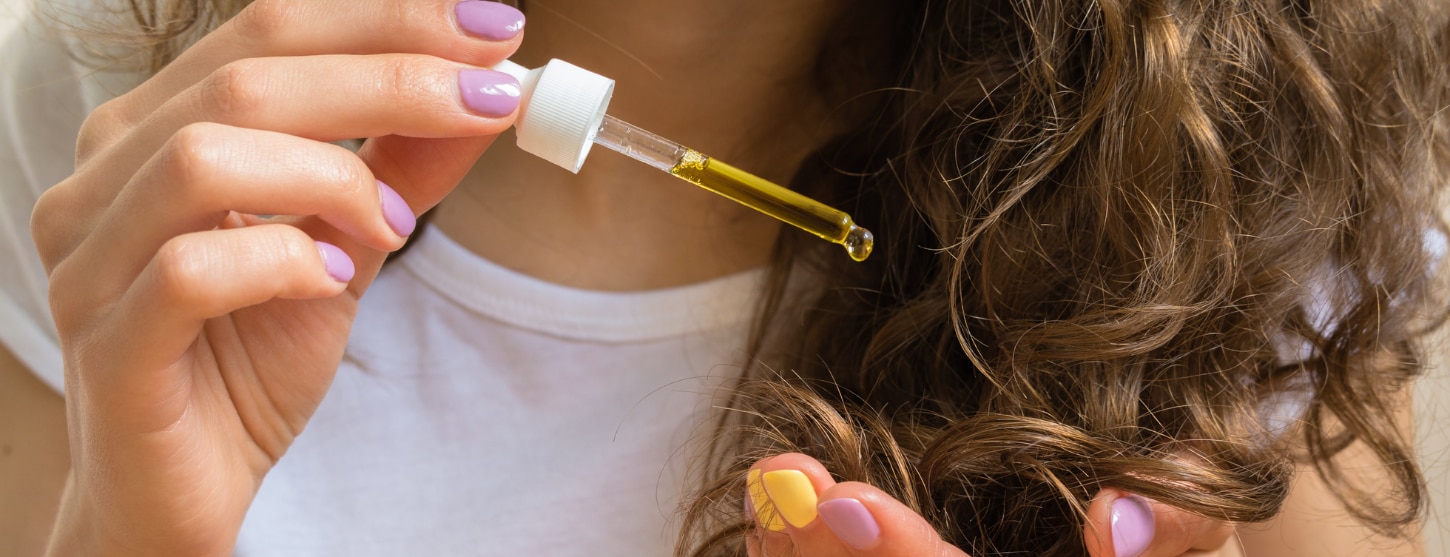15% off €25
Code:DEAL
Pregnancy hair loss – what can you do about it?

Many women report thicker locks during pregnancy – but some women experience hair loss. But why does it occur? And more importantly – what can you do about it?
Summary
1How does pregnancy affect your hair?
Pregnancy and hair loss may not be much discussed but losing hair while pregnant isn’t that unusual. Some women get thicker hair during pregnancy...
2Post-pregnancy hair loss
The drop in oestrogen following baby’s birth causes significant hair shedding, or telogen effluvium, in the weeks after delivery, with the most...
3Why do some pregnant women experience hair loss b
It may be less talked about, but some pregnant women see an increase in hair fall before the baby is born...
You may have heard that during pregnancy hair gets thicker and more lustrous. So why are you dealing with more shedding than ever since finding out your happy news?
Pregnancy hair loss is real – but why do some women get it, while other women report the best locks of their life during those nine months? We take a look at the reasons behind hair loss during pregnancy, the signs to look out for, as well as ways to deal with hair loss, including tips on hair care, foods and the right diet to follow to ensure your best defence against pregnancy-related hair fall.
How does pregnancy affect your hair?
Pregnancy and hair loss may not be much discussed but losing hair while pregnant isn’t that unusual. Some women get thicker hair during pregnancy, whereas some women’s hair becomes thinner.
Let’s look at the ways pregnancy can affect your hair.
Why does hair stop falling out during pregnancy?
During pregnancy, your body is flooded with the hormone oestrogen.1Oestrogen can cause the natural shedding cycle of the hair to slow down, meaning that in some pregnancies, hair stays on the head longer in the growth stage before naturally falling out. This can make hair appear thicker.2
Post-pregnancy hair loss
The drop in oestrogen following baby’s birth causes significant hair shedding, or telogen effluvium, in the weeks after delivery, with the most common period of pregnancy-related hair loss occurring around three months after delivery.3
This is simply the extra hair that’s been retained during pregnancy finally falling out naturally, and although it may be a little alarming to see so much hair in your hairbrush and shower drain, it is completely normal and will resolve itself in the months following birth.
Why do some pregnant women experience hair loss before they’ve given birth?
It may be less talked about, but some pregnant women see an increase in hair fall before the baby is born.
This could be for a number of reasons.
6 reasons why you could be experiencing hair loss while pregnant
You can become low on certain vitamins and minerals during pregnancy, as your body directs available resources to the growing foetus. This can be especially likely in women who have had severe morning sickness.4 For example, iron deficiency (anaemia) is common during pregnancy, as your body makes a greater volume of blood to support your baby.
Studies have shown that having low iron stores a risk factor for hair loss in women.5
Your midwife or doctor should be monitoring your iron levels at your prenatal appointments, so chat with them if you have any concerns.
In some cases, hormonal fluctuations during early pregnancy may interfere with the hair growth cycle.6
The rapid hormone changes that come with being pregnant can trigger hair shedding, or telogen effluvium, instead of the more common effect of oestrogen prolonging of the hair’s growth phase.7
Having low levels of thyroid levels – a condition known as hypothyroidism – has hair loss as a side effect.8
Hypothyroidism to the extent that it causes hair loss occurs in about two to three of every 500 pregnant women.9 It’s more likely to affect you if you have a family history of thyroid disorders.
Stress causes elevated levels of the hormone cortisol in our bodies. Cortisol is bad news for skin cells (which is why people say stress is ageing). Cortisol also affects the function and cycle regulation of our hair follicles.10
Perhaps you’re finding pregnancy stressful, or you have other things going on in your personal or professional life that are causing you strife? Either way – stress could be the answer to pre-natal hair loss.
If you’re losing lots of hair while pregnant, it’s natural to assume it has something to do with your pregnancy. However, hair loss can be caused by something else entirely. For example, tight hairstyles are a major cause of traction alopecia, where your hair follicles are subject to repeated pulling force.11
Think about how you’ve been treating your hair lately. If you can spot any potentially damaging hair habits, then switch them for a gentle haircare routine and see if you see an improvement after six weeks.
Hair shedding, or telogen effluvium, can occur following recovery from an acute illness and last around six months.
The types of illnesses which can trigger telogen effluvium include viral illnesses like the flu.12
Often, people fail to make the connection with their previous illness and the current hair shedding as it can take a month or more to present itself.13
- Some women get thicker hair during pregnancy – thanks to the hormone oestrogen slowing down hair shedding
- Other women experience hair loss and thinning while they’re expecting
- This could be down to a deficiency, stress, hormonal or from something unrelated like haircare or illness
4 ways to deal with hair loss when pregnant
Take a break from bleach and harsh dyes. Minimise damage to the hair follicles by avoiding hairstyles like high ponytails, boxer braids, weaves and extensions.14
Try to let your hair exist in its natural state to give your follicles a chance to recover.
Your hair needs certain nutrients to have its best chance of growing strong. A good hair loss pregnancy diet should include foods like:15
- eggs - which contain protein, biotin, zinc and selenium
- spinach - a good source of magnesium and B vitamins
- avocadoes - full of healthy fats
- nuts and seeds - which contain vitamin E
- oily fish - (in limited amounts) for their omega 3 fatty acid content.
You may want to try a supplement to ensure you’re getting enough of the right vitamins to support the maintenance of normal hair growth.
We suggest a multivitamin designed for hair which includes:
- Biotin – taking biotin may help prevent shedding, and biotin deficiency is associated with hair loss.16
- Vitamin E – studies show taking vitamin E can increase the amount of hair strands you have after 8 months.17
- Zinc – zinc deficiency can cause hair loss, so getting enough is important.18
- Selenium – selenium helps reduce inflammation and oxidative stress, which can help hair retention.19
As a mum-to-be, you have enough on your mind without worrying about losing a little extra hair. Try to relax and reduce stress as much as possible. We know it’s natural to be concerned, but pregnancy only lasts nine months – and after birth, your hormones will return closer to their pre-pregnancy levels.
Handpicked content: Guide: How to relax
- To avoid shedding, be gentle on your hair and avoid harsh styles or treatments
- Eat a balanced diet full of hair-friendly nutrients like protein, biotin, healthy fats and vitamins
- Take a multivitamin if you think you may have a deficiency
- Relax – stressing won’t help!
- https://www.nct.org.uk/pregnancy/how-you-might-be-feeling/pregnancy-hormones-progesterone-oestrogen-and-mood-swings/
- https://journals.plos.org/plosone/article?id=10.1371/journal.pone.0040124
- https://americanpregnancy.org/healthy-pregnancy/pregnancy-health-wellness/hair-loss-during-pregnancy-973/
- https://www.pregnancysicknesssupport.org.uk/documents/conference_papers/Nutrition_in_hyperemesis_gravidarum.pdf
- https://pubmed.ncbi.nlm.nih.gov/17951130/
- https://parenting.firstcry.com/articles/hair-loss-pregnancy-causes-prevention/
- https://greatist.com/health/hair-loss-in-pregnancy#causes
- https://www.btf-thyroid.org/hair-loss-and-thyroid-disorders
- https://www.whattoexpect.com/pregnancy/pregnancy-health/complications/thyroid-disorder.aspx
- https://pubmed.ncbi.nlm.nih.gov/27538002
- https://www.ncbi.nlm.nih.gov/books/NBK470434/
- https://www.alopecia.org.uk/news/hair-loss-after-illness-including-covid-19
- https://www.ncbi.nlm.nih.gov/books/NBK430848/
- https://www.bad.org.uk/shared/get-file.ashx?id=6323&itemtype=document
- https://www.researchgate.net/publication/328802583_Hair_and_Food
- https://www.hindawi.com/journals/drp/2015/841570/
- https://www.ncbi.nlm.nih.gov/pmc/articles/PMC3819075/
- https://www.ncbi.nlm.nih.gov/pmc/articles/PMC5315033/
- https://www.ncbi.nlm.nih.gov/pmc/articles/PMC3277928/



